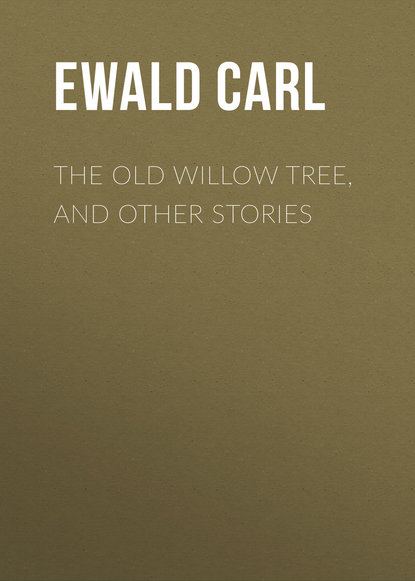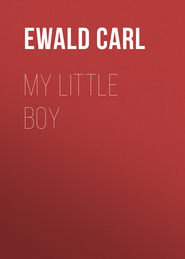По всем вопросам обращайтесь на: info@litportal.ru
(©) 2003-2024.
✖
The Old Willow Tree, and Other Stories
Настройки чтения
Размер шрифта
Высота строк
Поля
The wood was still green, but darker; and, in many places, yellow and red leaves appeared among the green ones. The sun was tired after his hot work during the summer and went to bed early.
At night, winter stole through the trees to see if his time would soon come. When he found a flower, he kissed her politely and said:
"Well, well, are you there still? I am glad to see you. Stay where you are. I am a harmless old man and wouldn't hurt a fly."
But the flower shuddered at his kiss and the bright dew-drops hanging from her petals froze to ice at the same moment.
Winter went oftener and oftener through the wood. He breathed upon the leaves, till they turned yellow, or upon the ground, till even the anemones, who lay below in the earth, waiting for Dame Spring to come again as she had promised, could feel his breath and shuddered right down to their roots:
"Oh dear, how cold it is!" they said to one another. "How ever shall we last through the winter? We are sure to die before it is over."
"Now my time has come," said winter. "Now I need no longer steal round like a thief in the night. From to-morrow, I shall look every one straight in the face and bite his nose and make his eyes run with tears."
At night, the storm broke loose.
"Let me see you make a clean sweep of things," said winter.
And the storm obeyed his orders. He tore howling through the wood and shook the branches till they creaked and broke. Any that were at all decayed fell down and those that held on had to twist and turn to every side.
"Away with all that finery!" howled the storm and tore off the leaves. "This is no time to dress yourselves up. Soon there will be snow on the branches: that's another story."
All the leaves fell terrified to the ground, but the storm did not let them lie in peace. He took them round the waist and waltzed with them over the field, high up in the air and into the wood again, swept them together into great heaps and scattered them once more to every side, just as the fit seized him.
Not until the morning did the storm grow weary and go down.
"Now you can have peace for this time," he said. "I am going down till we have our spring-cleaning. Then we can have another dance, if there are any of you left by then."
And the leaves went to rest and lay like a thick carpet over the whole earth.
The anemones felt that it had grown delightfully warm:
"I wonder if Dame Spring can have come yet?" they asked one another.
"I haven't my buds ready!" cried one of them.
"No more have I! No more have I!" exclaimed the others in chorus.
But one of them took courage and just peeped out above the ground.
"Good-morning!" cried the withered beech-leaves. "It's rather too early, young lady: if only you don't come to any harm!"
"Isn't that Dame Spring?" asked the anemone.
"Not just yet," replied the beech-leaves. "It's we, the green leaves you were so angry with in the summer. Now we have lost our brightness and have not much left to make a show of. We have enjoyed our youth and had our fling, you know. And now we are lying here and protecting all the little flowers in the ground against the winter."
"And meanwhile I am standing and freezing in my bare branches," said the beech, crossly.
The anemones talked about it down in the earth and thought it very nice:
"Those dear beech-leaves!" they said.
"Mind you remember it next summer, when I come into leaf," said the beech.
"We will, we will!" whispered the anemones.
For that sort of thing is promised, but the promise is never kept.
The WOOD and the HEATH
1
There was once a beautiful wood, filled with thousands of slender trunks and with singing and whispering in her dark tree-tops.
She was surrounded by field and meadow; and there the farmer had built his house. And field and meadow were good and green; and the farmer was hard-working and grateful for the crops which he brought home. But the wood stood like a lady of the manor, high above them all.
In the winter-time the fields lay flat and miserable, the meadow was merely one great lake with ice upon it and the farmer sat huddled in the chimney-corner; but the wood just stood straight and placid with her bare branches and let the weather storm and snow as it pleased. In the spring, both meadow and field turned green and the farmer came out and began to plough and sow. But the wood burst forth into so great a splendour that no one could hope to describe it: there were flowers at her feet and sunshine in her green tree-tops; the song of the birds echoed in even the smallest bush; and perfume and bright colours and gaiety reigned here and there and everywhere.
Now it happened, one summer's day, while the wood stood waving her branches, that she set eyes upon a funny brown thing which was spreading itself over the hills towards the west and which she had never seen before:
"What sort of fellow are you?" asked the wood.
"I am the heath," said the brown thing.
"I don't know you," said the wood, "and I don't like you: you are so ugly and black, you don't look like the field or the meadow or anything that I know. Can you bud into leaf? Can you blossom? Can you sing?"
"Indeed I can," said the heath. "In August, when your leaves begin to look dark and tired, my flowers will come out. Then I am purple, purple from end to end, and more beautiful than anything you have ever seen."
"You're a braggart!" said the wood; and the conversation dropped.
2
Next year, the heath had crept a little way down the hill, towards the wood. The wood saw this, but said nothing. She thought it beneath her dignity to talk to such an ugly fellow; but, in her heart of hearts, she was afraid. Then she made herself greener and prettier and looked as if there were nothing the matter.
But, every year, the heath came nearer. He had now covered all the hills and lay just outside the fence of the wood.
"Be off!" said the wood. "You annoy me. Take care you don't touch my fence!"
"I'm coming over your fence," said the heath. "I'm coming into you, to eat you up and destroy you."
Then the wood laughed till all her leaves quivered:
"So that's what you mean to do, is it?" she said. "If only you can manage it! I'm afraid that you will find me too big a mouthful. I daresay you think I'm a bit of a field or meadow, which one can walk over in a couple of strides. But I'm the most powerful and important person in the neighbourhood, you may as well know. I shall soon sing my song to you; then perhaps you will change your ways of thinking."
Then the wood began to sing. All the birds sang; and the flowers raised their heads and sang too. The smallest leaf hummed with the rest, the fox stopped in the middle of eating a fat chicken and beat time with his brush, the wind blew through the branches and played an organ accompaniment to the song of the wood:
"Merrier meeting was never yet
Than the festal wood discloses,
When wood-ruff nestles by violet








